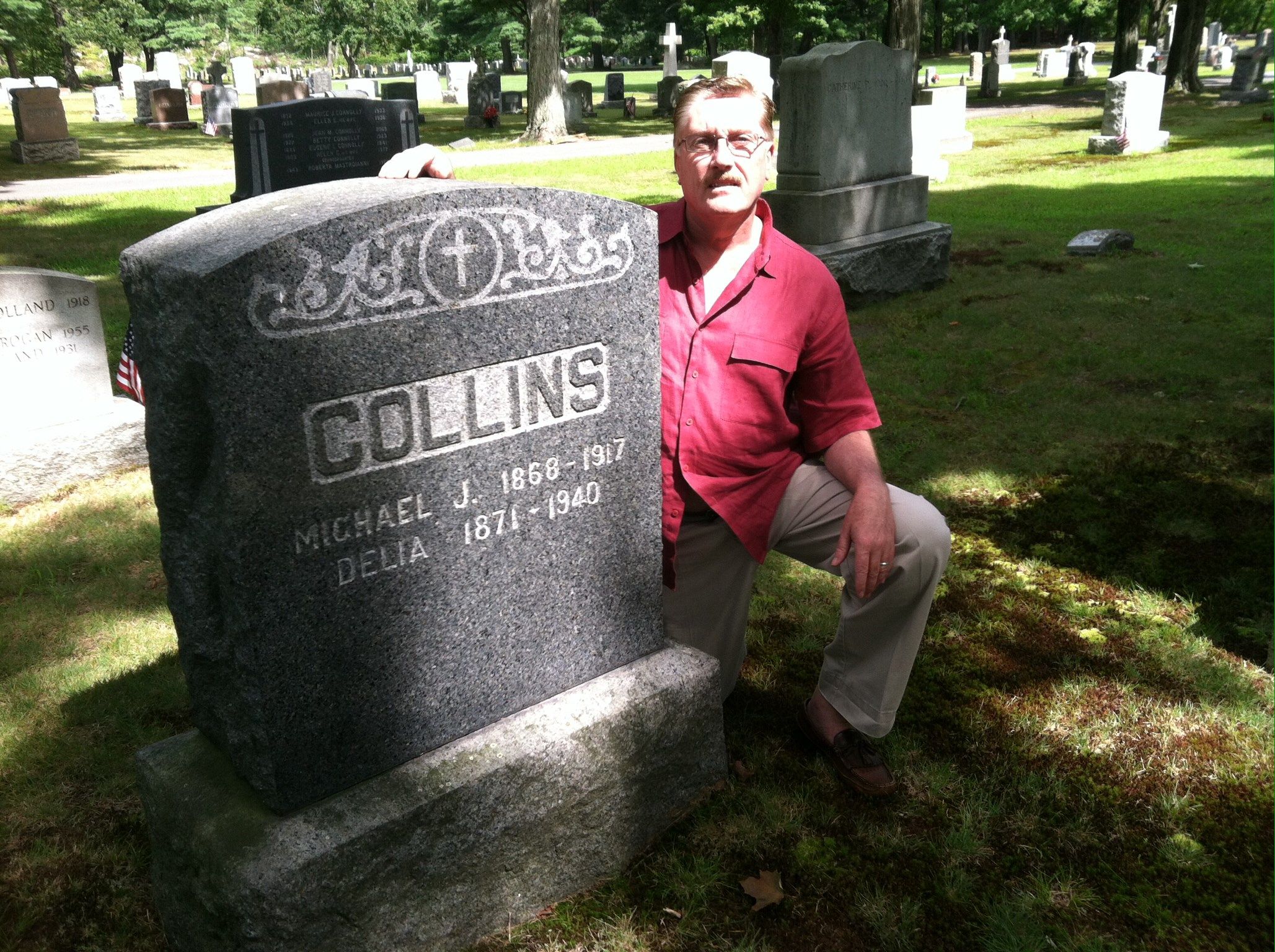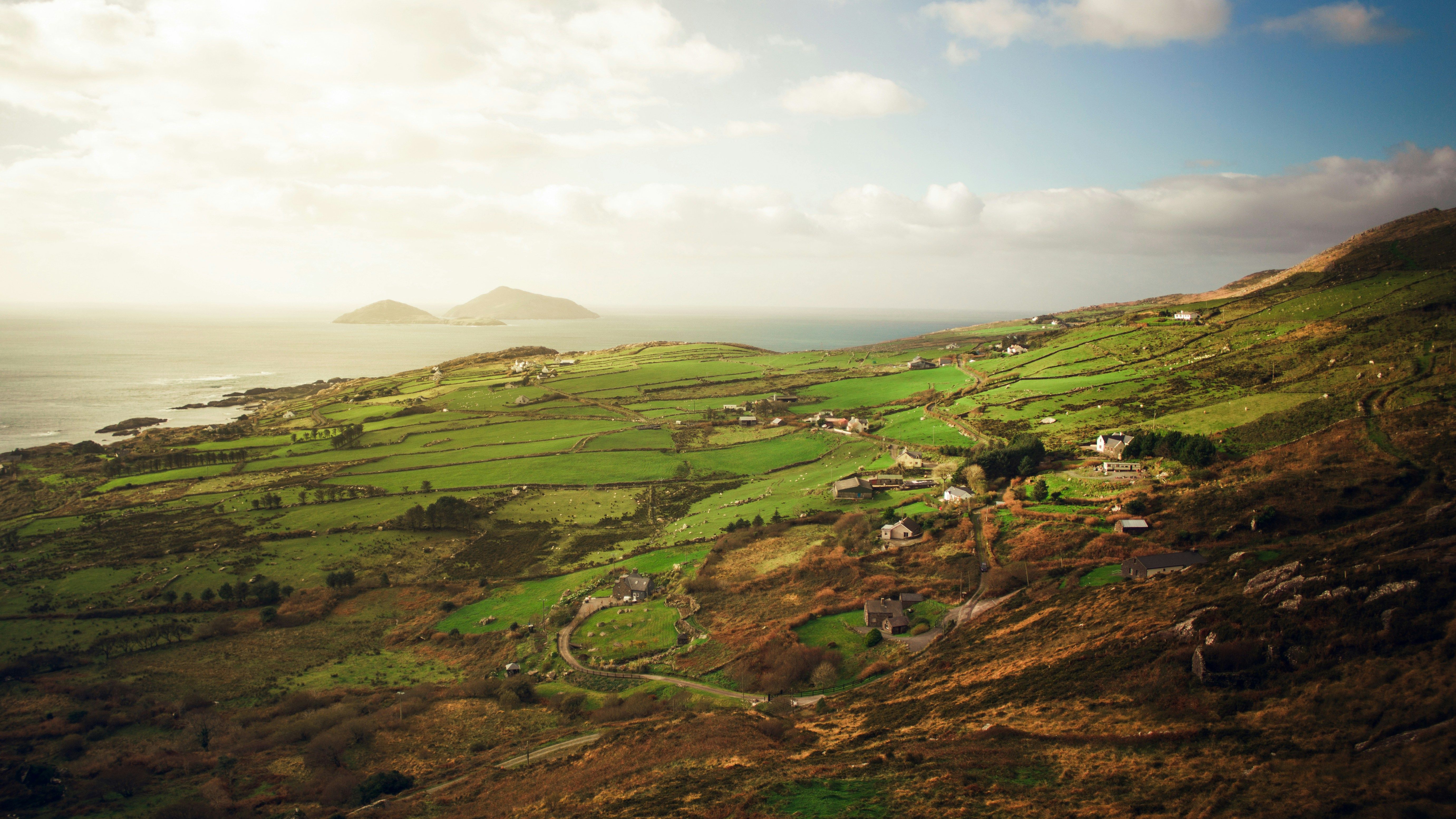Charles Paul Collins' first novel, 'The Remembering: Of Leather and Stone' is a compelling odyssey across 150 years of American history as told through the stories of three struggling families. We present here an excerpt in the voice of its first narrator, Irish Great Hunger exile Cornelius Collins.
Monday, November 22, 1852
We were woken up before sunrise by members of the ship’s crew, telling us that Boston was in sight and to make ready. After forty-one days at sea, everyone, including myself, couldn’t believe we were actually hearing those words. No one could wait to get off that ship, and we moved quickly to gather our belongings.
Those of us with few possessions made our way up the stairs to the top deck to catch our first glimpse of Boston. All you could see in the distance at first was a wavy line of small hills against the cold, clear blue November sky.
As the Clara Wheeler moved into the harbor channel and the morning sun rose behind us, the shapes of buildings on the shore became clearer, their brick-red and grayish-black colors standing out. Then the ship’s crew jumped when the captain commanded to drop anchor where we sat.
"All morning, I sat on deck with everyone else, staring at the buildings on the shore and imagining a new life just out of reach. Finally, the tide rose high enough for the harbor pilots to board our ship and steer us between the islands.."
“Why are we stopping here?” people asked some crew members near us. "FIRST GLIMPSE OF BOSTON":The author at the gravesite of his great-grandfather Michael James Collins in St. Mary’s Cemetery, Milford, MA – a landmark in the book.
“Waiting for the tide to rise,” they said. “Need to lift the ship above the rocks on the uneven channel bottom if we’re going to get her to the dock in one piece.”
In Liverpool, there was no talk about dangerous rocks in the Mersey River. But Boston was a different story. If we didn’t move carefully to avoid the shallows, a strike against a rock could break right through the ship’s hull planks, flood the lower deck, drowning everyone there, and sink the ship within minutes, all within sight of Boston.
All morning, I sat on deck with everyone else, staring at the buildings on the shore and imagining a new life just out of reach. Finally, the tide rose high enough for the harbor pilots to board our ship and steer us between the islands dotting the harbor.
As we got alongside the dock, the ship bumped it with a jolt, throwing some belongings sideways and sending passengers screaming, thinking we had hit the rocks. When the ship steadied and people quieted down, we could hear the men on the dock below shouting up to our crew as they pulled the rope lines together to secure the Clara Wheeler.
When we came to a dead stop, even the deathly ill cheered as loudly as they could. It was like nothing I had ever heard before. At that moment, I saw a feeling of shared compassion among everyone who had survived that dreadful journey. Tears of thanks, and perhaps tears for loved ones who had not made it, flowed freely.
Constitution Wharf, Boston City, America
Everyone was terribly anxious as the cabin passengers and their luggage were offloaded. Those still below decks, waiting to climb up, began shouting and pushing to open the stair hatch doors to reach the top deck.
It became very tense when the people queued at the top of the stairs began screaming to be let out. Those at the bottom were pushing them up against the closed hatch door, crushing them.
The crew finally acted to prevent people from being crushed. They opened the hatch door, causing a pile of people to spill out onto the deck like a net full of wriggling fish released onto a fishing boat deck, slipping, and sliding everywhere.
The rest followed behind, balancing their belongings while clutching their money purses and papers close. All the sick and those unable to move were told to wait until everyone else had cleared out. Then, the ship’s crew would carry them out.
As we walked down the gangway away from the Clara Wheeler, I saw the dock below was just as chaotic as Waterloo Dock in Liverpool. The man just ahead of me turned and pointed to a sign on the building in front of us and said, “It’s Constitution Wharf, lad. We’re in America!”
At the bottom of the gangway, officials in uniforms formed a corridor on either side, moving us along to a line of desks with more officials to process our papers, just as they did in Liverpool.
'Remembering: Of Leather and Stone' can be bought direct from Amazon.









